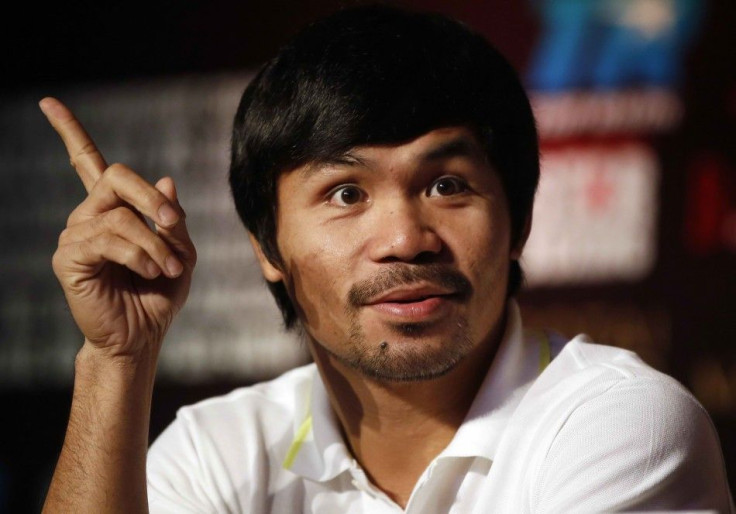Pacquiao Agrees to Lower Guaranteed Purse Than Mayweather’s

When Floyd Mayweather Jr. said two weeks ago that he should get two-thirds of the guaranteed purse, speculated to range from $100 million to $250 million, for him to agree to fight Manny Pacquiao, many thought it was just another of his delaying tactics to evade the dream match.
He cited Pacquiao's two recent losses and his reported very low pay-per-view buys of only 300,000 in his Nov 22 bout against Chris Algieri as justifications why Mayweather should get the lion's share, living to his nickname of "Money May."
Mayweather also pointed to Pacquiao's tax problem with the Philippine government as the only reason why the Filipino congressman is pushing for the dream match.
In accepting Mayweather's May 2, 2015 challenge, Pacquiao said he didn't mind getting a smaller share of the guaranteed purse. Like Mayweather, he said he wanted to push through with the bout to give in to fans' demand, although Money May insisted that the southpaw is not on the same level as he is.
YouTube/BestBoxingFightNewsChannel
At least two boxing experts believe Pacquiao is the better boxer between the two and cited fight statistics to back their claim.
For his part, Pacquiao said he agreed to fight Mayweather to give in to the request of his son, Jimwell, who like other boxing fans want to see the dream match finally take place before the two boxers retire.
But Pacquiao admitted he is wary if the fight will push through because of Mayweather's reputation of saying "yes" one day and saying "no" the following day.





















